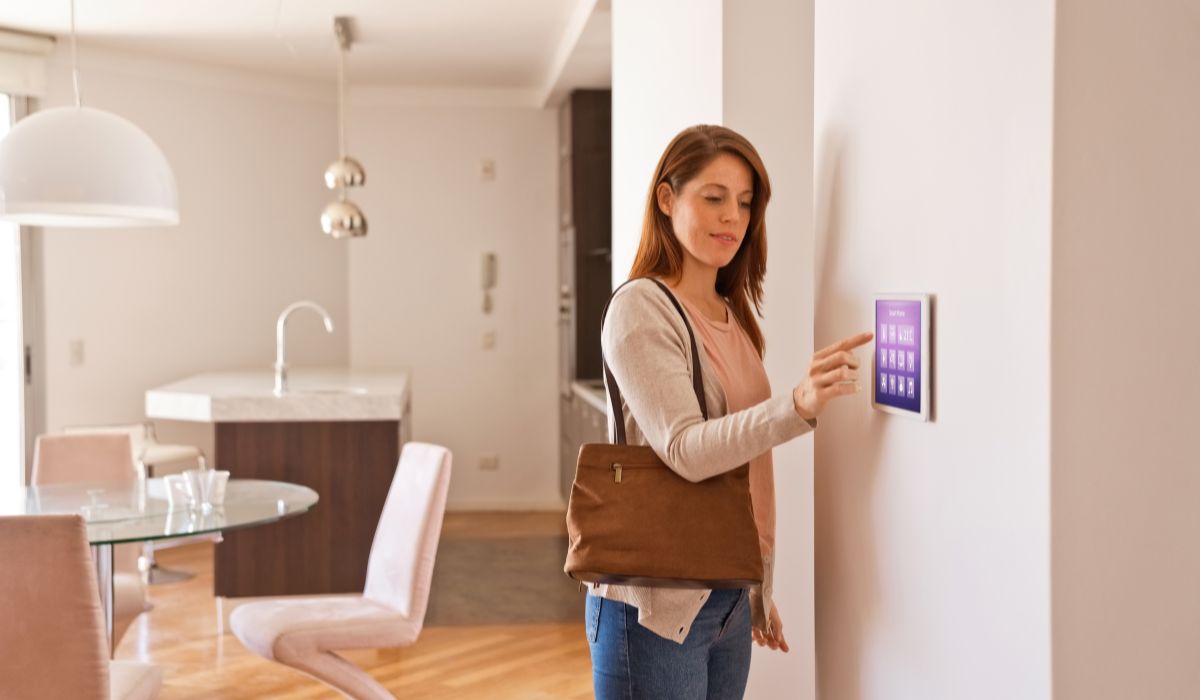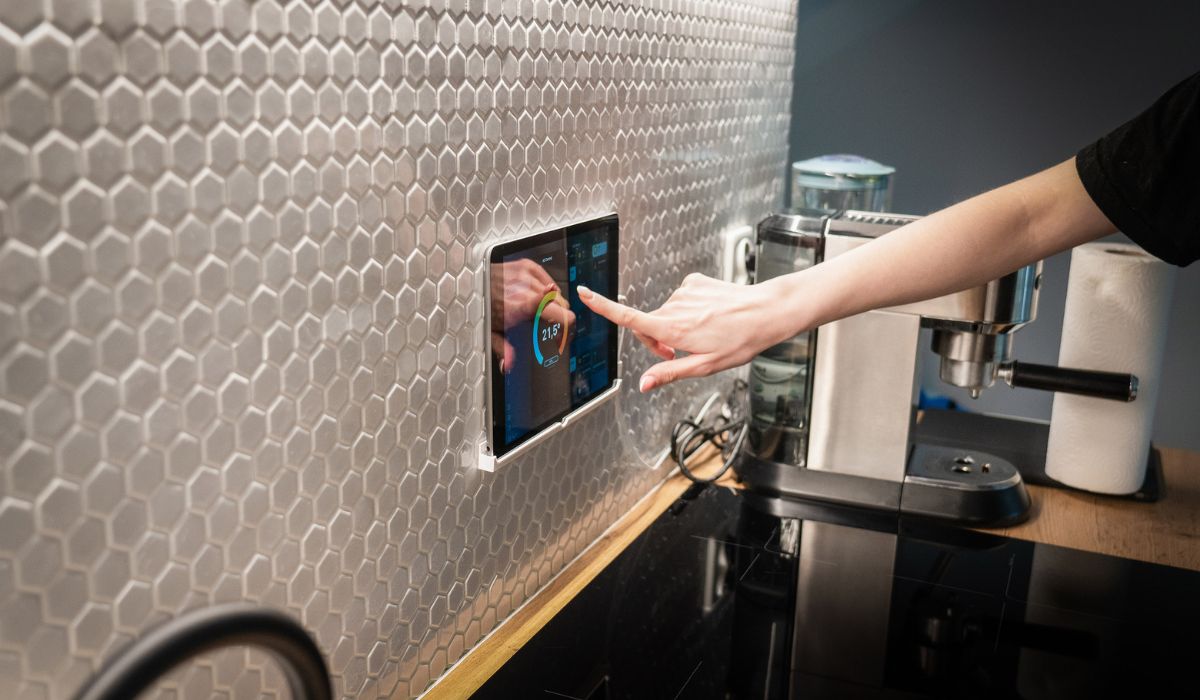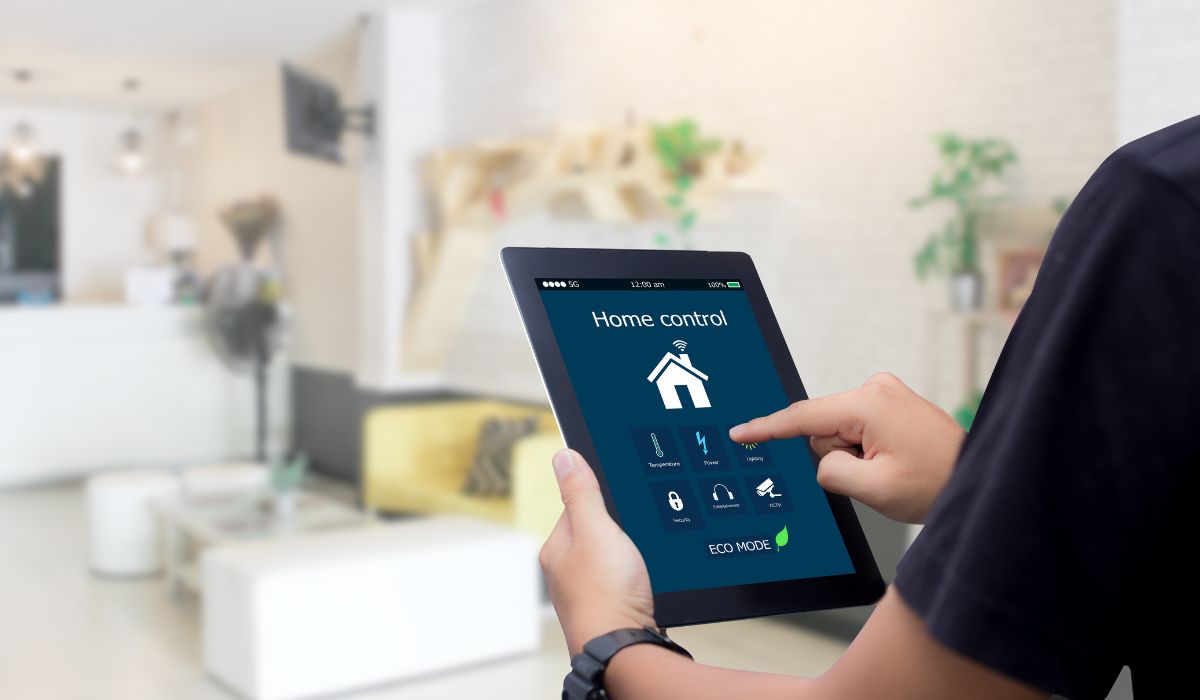Can Smart Home Sensors Really Help Stop Water Damage Early?
Water damage is one of the most common and costly problems homeowners face. A small leak from a pipe, toilet, or washing machine can quickly turn into a flooded basement, ruined walls, or dangerous mold growth. Not only does it damage your property, but it also leads to expensive home insurance claims.
This raises the question many homeowners ask: Can smart home sensors really help stop water damage early? The answer is yes. With the right smart home devices, leak detection systems, and automation tools, you can catch problems before they become disasters.
In this article, we’ll break down how smart home technology works, why early detection is important, and how tools like leak detectors, smart valves, and moisture sensors connect to your smartphone to protect your home.

What Causes Water Damage in Homes?
Before we dive into the role of smart home sensors, it helps to know what causes water damage. Common sources include:
- Leaky pipes – Old or corroded plumbing can crack and drip slowly over time.
- Appliance leaks – Your dishwasher, washing machine, or water filter can spring leaks.
- Roof damage – Rain and snow can seep in through missing shingles.
- Flooding – Heavy storms can overwhelm drains and basements.
- Bathroom problems – Overflowing toilets, clogged sinks, or broken showers.
- Freezing – Cold weather can cause pipes to burst when water expands into ice.
Each of these problems can go unnoticed until major damage is done—unless you have detection systems in place.
How Smart Home Sensors Work for Leak Detection
Smart sensors are small smart devices that detect moisture, changes in pressure, or unusual water supply behavior. Here’s how they help:
Moisture and Leak Detection Sensors
Placed under sinks, behind toilets, near your water heater, or in the basement, these leak detectors sense the first signs of a water leak. They can:
- Send alerts to your smartphone
- Sound alarms like a smoke detector
- Notify your home security system
Smart Shut-Off Valves
Some systems include valves that automatically shut off your water supply when a leak is detected. This prevents flooding from getting worse.
Connected Home Automation
Many smart home devices connect with your smart thermostat, camera, or security system through your home network. This way, you can track reports, get information, and even allow your insurance agent to review water damage claims with data from your system.

Why Early Leak Detection Matters
Catching a leak early can save thousands of dollars in water damage claims. Here’s why:
- Preventing mold – Damp areas quickly grow mold, which can trigger asthma and other health problems.
- Protecting your foundation – Water in your basement or under your roof weakens the structure.
- Saving appliances – Leaks from your dishwasher or washing machine can ruin floors and wiring.
- Lower insurance costs – Some insurance policies give discounts for having water leak detection systems installed.
When sensors alert you right away, you can call a plumber, fix the problem, and avoid major damage.
Smart Home Technology and Water Damage Prevention
Let’s look at different smart home technology options available today.
Leak Detectors
Battery-powered leak detectors are simple to place under appliances, sinks, and bathrooms. They notify you when moisture is detected.
Smart Valves
A smart valve works with your water supply and shuts it off when leaks are found. This is especially helpful if a pipe bursts while you’re away.
Pressure Regulators
High water pressure can cause pipes and drains to fail. Smart pressure regulators monitor and adjust levels automatically.
Smart Thermostat and Freezing Protection
A smart thermostat can help prevent freezing by keeping your home warm enough to stop pipes from bursting.
Water Filtration and Softening Systems
Smart water filters and water softening devices monitor flow and alert you to problems in your system.
Integration With Home Automation
Many smart home systems connect with cameras, smoke detectors, and your home security system for complete protection.
How Sensors Connect to Your Smartphone
One of the best parts of modern smart home devices is that they connect directly to your smartphone. This gives you real-time information and reports no matter where you are.
- Instant alerts when leaks are detected
- Remote shut-off of water supply
- Monitoring humidity and moisture levels
- Reviewing data for insurance claims
With home automation, you don’t have to wait until you see a puddle on the floor—you’ll know right away.
The Role of Insurance and Smart Devices
Insurance companies know that water damage claims are some of the most expensive. That’s why many now encourage homeowners to install leak detection systems.
- Some insurance policies offer discounts for smart home technology.
- Data from your sensors may speed up insurance claims.
- A record of alerts can help your insurance agent confirm when damage started.
By using smart devices, you may save on home insurance while protecting your property.
Where Should You Place Water Leak Detection Sensors?
Placement is key for effective detection systems. The best spots include:
- Basement floors near drains
- Under the sink in kitchens and bathrooms
- Around the dishwasher and washing machine
- Near the water heater
- By the toilet and shower
- Under the roof or in attics where leaks may form
Think of it like having a smoke detector for water leaks—you want them in every risk area.
Do Smart Sensors Really Stop Damage or Just Warn You?
Some people wonder if sensors only send warnings or if they can actually stop water damage. The truth is, they do both.
- Leak detectors send alerts so you can act quickly.
- Smart valves stop water supply automatically.
- Pressure regulators prevent pipes from bursting.
- Smart thermostats protect against freezing.
When combined, these systems act as a shield for your home.
Smart Home Sensors vs. Traditional Detection
In the past, you might only notice leaks when you saw water stains on your ceiling, smelled mold, or spotted rust. By then, the damage was already done.
With smart home technology, sensors provide real-time information. They don’t wait until it’s too late—they act at the first sign of moisture or pressure changes.
Costs and Savings of Smart Home Sensors
Yes, smart home devices cost money up front. But consider the savings:
- Average water damage repair can cost thousands.
- A leak detection system may only cost a few hundred.
- Insurance discounts can help pay for the devices.
- Preventing even one major flood pays for the system many times over.
Think of it as a small investment with a big return.
The Future of Smart Home Technology for Water Safety
As technology improves, more advanced detection systems are becoming available. Soon, we may see:
- AI-powered sensors that predict failures before they happen
- Integration with home insurance agents for instant claims
- Network-connected systems that work with every smart device in your house
The goal is to make water problems as preventable as smoke or heat dangers.

FAQs
How do smart home sensors detect water leaks?
Smart sensors use moisture detection and pressure monitoring to find unusual activity. They send alerts to your smartphone or trigger a shut-off valve.
Can smart sensors connect to my home security system?
Yes. Many leak detection systems link with home security systems, cameras, and smoke detectors for full home automation protection.
Do insurance companies really give discounts for smart devices?
Some insurance policies offer discounts if you install smart home technology like water leak detection systems. Always ask your insurance agent.
What areas of the home need leak detectors most?
The basement, bathroom, kitchen sink, dishwasher, washing machine, roof, and toilet are the most common leak spots.
Are smart sensors worth the cost?
Yes. Preventing one flood, mold problem, or water damage claim can save thousands. Smart home devices provide peace of mind and protection. Contact us for more information or visit a store nearby such as Best Buy to get smart home equipments.
Conclusion: Can Smart Home Sensors Really Help Stop Water Damage Early?
So, can smart home sensors really help stop water damage early? Absolutely. With tools like leak detectors, smart valves, pressure regulators, and smart thermostats, you can spot issues fast and even stop damage before it spreads.
By combining smart home technology, proper placement, and good maintenance, homeowners can protect their plumbing, reduce insurance claims, and keep their homes safe from floods, leaks, and mold.
The bottom line: Smart detection systems aren’t just a trend—they’re a powerful shield for your home.



